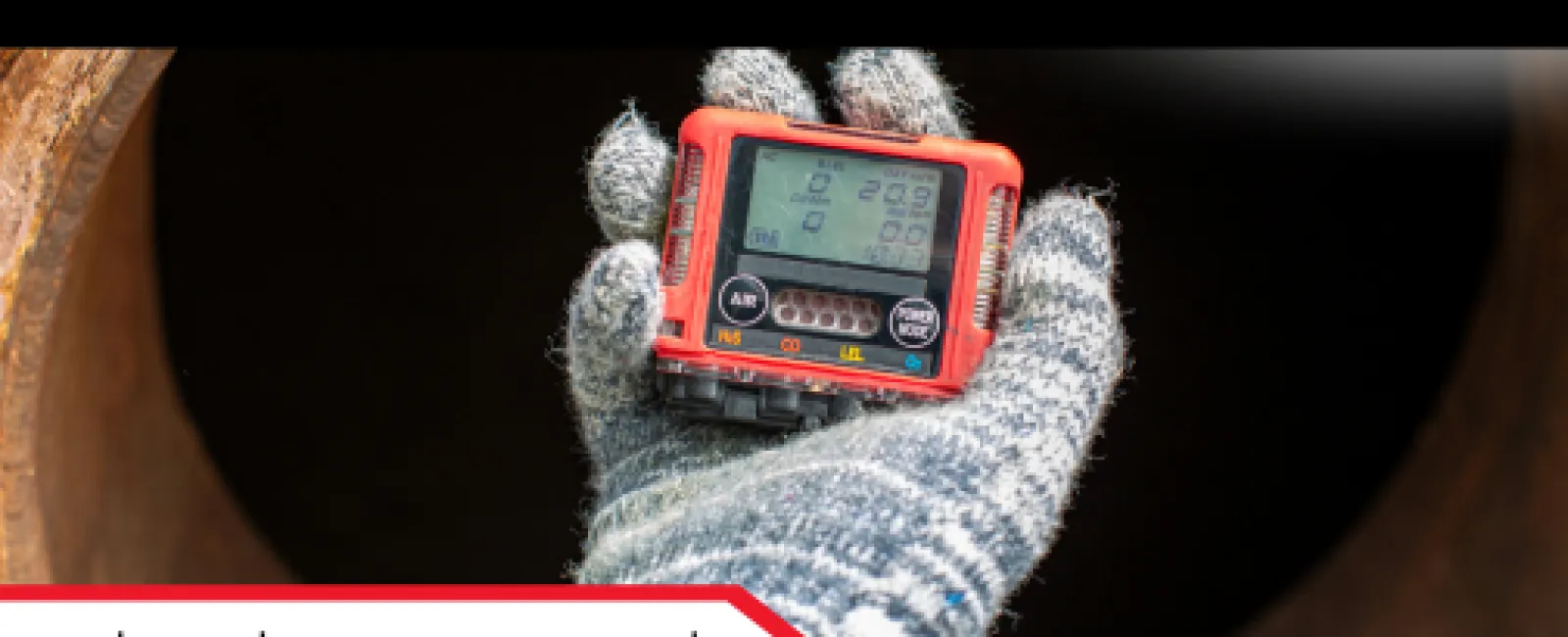As cooler weather approaches and Georgia homeowners begin to close windows and switch on heating systems, indoor air quality becomes more important than ever. While most people think of insulation, humidity, or dust when considering air quality, there's another invisible factor that can pose serious health risks if left unchecked — radon gas. Radon is a naturally occurring radioactive gas that can accumulate inside homes, especially when ventilation decreases during the winter months. Because it is odorless, tasteless, and colorless, it often goes unnoticed until professional testing reveals its presence.
At LunsPro Inspection Group, our inspectors regularly perform Atlanta, Alpharetta, and Athens Residential and Commercial Inspections that include comprehensive radon testing. Many Georgia homeowners are surprised to learn that radon exposure is the second leading cause of lung cancer in the United States, according to the Environmental Protection Agency (EPA). What's even more concerning is that radon levels can fluctuate seasonally — with some of the highest concentrations occurring during colder weather when homes are sealed tightly for warmth. Understanding why testing before winter is essential, and how to address elevated radon levels, can make a major difference in the health and safety of your home.
What Is Radon and Where Does It Come From?
Radon is produced by the natural decay of uranium, which is found in varying amounts in soil, rock, and groundwater. As uranium breaks down, radon gas is released and moves upward through the soil. In open air, radon dissipates harmlessly. However, when it rises beneath buildings, it can enter through cracks in foundations, gaps around pipes, crawl spaces, and other openings — where it can become trapped indoors.In Georgia, the geology of the region makes radon a particularly relevant concern. The northern half of the state, including the Atlanta and Athens areas, sits atop granite-rich soil and rock formations that tend to emit higher levels of radon. Even in areas like Alpharetta, where modern construction standards are common, homes can still develop small foundation gaps over time that allow radon infiltration. Because radon is undetectable without specialized equipment, even well-sealed, newly built homes can experience elevated concentrations.
Why Radon Testing Matters More in Winter
Many homeowners assume that radon testing can be performed at any time of year — and while that's true, winter testing tends to provide the most accurate reflection of the potential risk. Here's why:1. Reduced Ventilation
During Georgia's mild spring and fall months, open windows and doors naturally ventilate a home. But once temperatures drop, homeowners seal up their spaces to retain heat. This reduction in airflow traps indoor gases — including radon — allowing concentrations to rise to levels that wouldn't normally occur in warmer seasons.
2. Stack Effect
When you heat your home, warm air rises and escapes through the upper levels or attic. This creates negative pressure in the lower portions of the home — particularly basements and crawl spaces — which draws more air (and potentially radon gas) upward from the soil below. The stronger your heating system runs, the greater this suction effect becomes.
3. Extended Indoor Exposure
Colder months mean more time spent indoors. Between work-from-home schedules, shorter daylight hours, and holiday gatherings, people are inside their homes longer than at any other time of year. If radon is present, this increased exposure elevates potential health risks.
4. Frozen or Saturated Ground
In some parts of Georgia, especially in northern regions, winter weather can harden or saturate the soil. This forces radon gas to travel through any available openings — often the small cracks or gaps leading into homes.
Because of these seasonal dynamics, LunsPro Inspection Group recommends conducting Georgia home inspections that include radon testing before winter heating begins. Doing so ensures that any potential radon issue is identified before families spend extended hours indoors.
Health Risks Associated with Radon Exposure
The dangers of radon come from prolonged exposure to its radioactive particles. When inhaled, these particles can damage lung tissue, leading to serious health issues over time. The EPA estimates that radon is responsible for more than 21,000 lung cancer deaths in the United States each year — second only to smoking.Key Health Facts:
- Long-term radon exposure is particularly dangerous for non-smokers, who may not otherwise consider themselves at risk for lung-related diseases.
- There are no immediate symptoms from radon exposure — you can live in a high-radon environment for years without realizing the danger.
- Children may be at increased risk because their respiratory rates are higher, and their lungs are still developing.
These facts highlight the importance of proactive testing and mitigation. Unlike many home maintenance issues that are visible or produce warning signs, radon exposure provides no immediate clues. Only professional testing can detect whether levels in your home exceed the EPA's action threshold of 4.0 picocuries per liter (pCi/L).
How Radon Testing Works
At LunsPro Inspection Group, radon testing is performed using advanced detection equipment designed to measure gas levels accurately over time. There are two primary types of testing methods:1. Short-Term Testing
This method typically lasts between two and seven days and provides a quick snapshot of your home's radon levels. Short-term tests are useful for determining if further investigation is needed — particularly before winter.
2. Long-Term Testing
For more comprehensive results, long-term tests can measure radon levels over several months. This helps identify seasonal variations and provides a better understanding of year-round exposure.
During Atlanta, Alpharetta, and Athens Residential and Commercial Inspections, our certified inspectors strategically place test devices in lower-level living spaces, such as basements or first floors — areas where radon is most likely to accumulate. The devices collect air samples over time, which are then analyzed for accuracy.
Results are reported in clear, actionable terms, with recommendations for mitigation if needed. In many cases, radon mitigation systems can reduce levels by up to 99%, making them an effective and permanent solution.
What Happens if Radon Levels Are High?
If testing reveals elevated radon concentrations, homeowners should not panic — radon problems are fixable. The goal of mitigation is to prevent radon from entering the home and safely vent any that does infiltrate.Common Radon Mitigation Methods Include:
- Sub-Slab Depressurization: The most common method, where a vent pipe and fan system are installed to draw radon from beneath the foundation and expel it outdoors.
- Sealing Cracks and Openings: Caulking foundation gaps, pipe penetrations, and crawl space joints can significantly reduce radon entry points.
- Crawl Space Ventilation: For homes with crawl spaces, installing a vapor barrier and venting system helps prevent gas accumulation beneath the living area.
The professionals at LunsPro Inspection Group often work alongside mitigation contractors to ensure solutions are tailored to each home's layout and soil conditions. Once mitigation is complete, follow-up testing confirms that radon levels are reduced to a safe range.
The Value of Radon Testing in Georgia Homes
Even though radon is a national concern, Georgia's unique geology makes testing particularly important. Granite-based soils, common in northern and central Georgia, naturally emit higher levels of radon. Areas such as Atlanta, Alpharetta, and Athens have all reported homes exceeding recommended safety limits.Furthermore, because many newer homes in Georgia are built with energy efficiency in mind, they are often more tightly sealed than older homes. While this improves heating and cooling performance, it also reduces natural ventilation — creating conditions where radon can become trapped more easily.
By including radon testing as part of Georgia home inspections, homeowners can:
- Protect their family's long-term health.
- Meet real estate disclosure requirements when selling a home.
- Avoid unexpected remediation costs during transactions.
- Gain peace of mind knowing their indoor air quality meets safety standards.
Why Choose LunsPro Inspection Group for Radon Testing
When it comes to something as critical as air quality, precision and professionalism matter. LunsPro Inspection Group offers decades of combined experience in environmental and structural inspections throughout Georgia and the Southeastern United States.Our Atlanta, Alpharetta, and Athens Residential and Commercial Inspections are conducted by certified professionals who use state-of-the-art equipment and follow EPA testing protocols. Beyond testing, our inspectors take the time to explain results, answer homeowner questions, and recommend appropriate next steps.
Choosing LunsPro Inspection Group means working with a trusted team that prioritizes transparency, safety, and accuracy. Whether you are buying, selling, or maintaining your property, our comprehensive approach ensures you have the information needed to make confident, informed decisions about your home's safety and performance.
Radon testing isn't just a box to check during a home sale — it's a vital step in maintaining a safe, healthy living environment. As winter approaches and Georgia homeowners begin sealing their homes to conserve heat, the risk of radon accumulation increases significantly. The good news is that testing is simple, affordable, and effective when performed by qualified professionals.
Partnering with LunsPro Inspection Group ensures that your home's air quality is assessed with precision and care. Whether you live in Atlanta, Alpharetta, or Athens, or anywhere across the state, including radon testing as part of your routine Georgia home inspections can provide lasting peace of mind. Before you turn on your heating system this winter, schedule a radon test to ensure that your home remains the safe, healthy haven it's meant to be.

